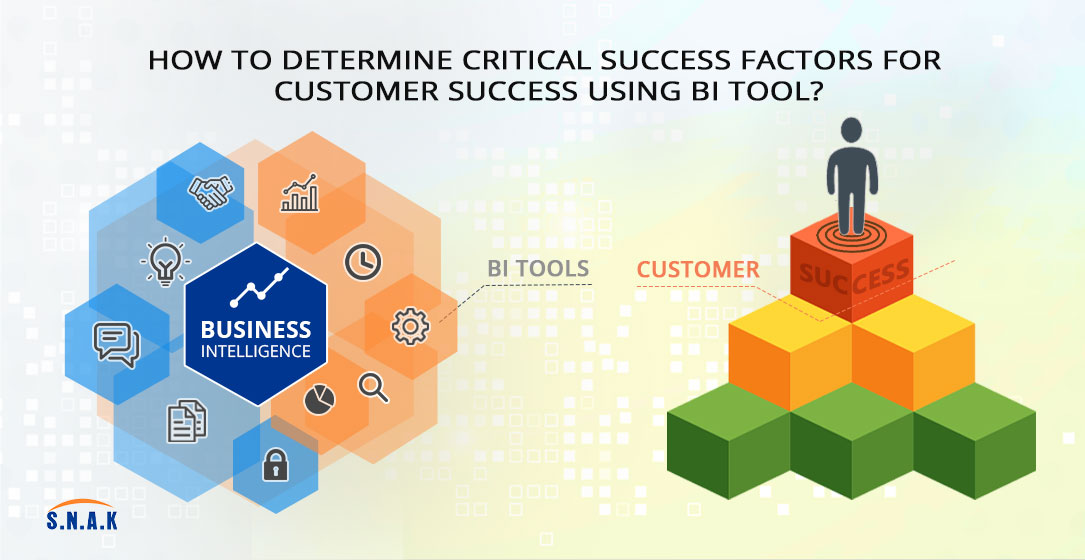March 5, 2024 | SNAK Consultancy
Share on :
How to know Purchase behavior on your data using BI tools?

In today's dynamic business landscape, customer success is paramount. But how can organizations ensure they're delivering what their customers truly value? Enter Business Intelligence (BI) tools, the modern-day compass guiding businesses toward understanding and meeting customer needs. Let's explore how BI tool can help determine critical success factors for customer success.
1. Data Integration:
The Foundation of Understanding BI tool excel in consolidating data from various touchpoints, including sales, marketing, customer service, and product usage. By integrating these disparate data sources, businesses gain a comprehensive view of customer interactions and behaviors.
2. Segmentation:
Tailoring Solutions to Unique Needs Segmentation is key to customer success. BI tool allow businesses to segment customers based on demographics, behavior, preferences, and usage patterns. This granular understanding enables personalized and targeted approaches to meet diverse customer needs effectively.
3. Performance Metrics:
Tracking Success Indicators BI tool offer a plethora of performance metrics to gauge customer success. From Net Promoter Score (NPS) and customer satisfaction ratings to churn rates and product adoption metrics, businesses can track key indicators and identify areas for improvement.
4. Predictive Analytics:
Anticipating Customer Needs One of the most powerful features of BI tools is predictive analytics. By analyzing historical data, BI tools can forecast future trends, behaviors, and potential churn risks. Armed with this foresight, businesses can proactively address issues and prevent customer dissatisfaction.
5. Actionable Insights:
Driving Strategic Decision-Making Ultimately, BI tools provide actionable insights that drive strategic decision-making. By understanding critical success factors such as customer satisfaction drivers, pain points, and preferences, businesses can tailor their strategies to enhance customer success.
Questionnaire
Q1: How do BI tool aid in understanding customer success factors?
A1: BI tools integrate data, segment customers, track metrics, predict trends, and provide actionable insights for optimizing customer success strategies.
Q2: What role does data integration play?
A2: Data integration consolidates diverse sources to provide a unified view of customer interactions and behaviors.
Q3: Why is segmentation important?
A3: Segmentation allows businesses to personalize approaches based on customer demographics, behavior, and preferences for enhanced success.
Q4: What insights do BI tool offer?
A4: BI tools offer analytics, metrics tracking, predictive capabilities, and actionable insights to drive strategic decision-making for customer success.
Q5: How do BI tool contribute to proactive measures?
A5: BI tool use predictive analytics to anticipate customer needs and behaviors, enabling businesses to take proactive measures to enhance customer success.
Conclusion :
BI tools are indispensable assets in determining critical success factors for customer success. From data integration and segmentation to performance metrics, predictive analytics, and actionable insights, BI tools empower businesses to cultivate lasting relationships with their customers and drive sustainable growth.
With BI tool as their compass, businesses can navigate the complex terrain of customer success with confidence, agility, and precision